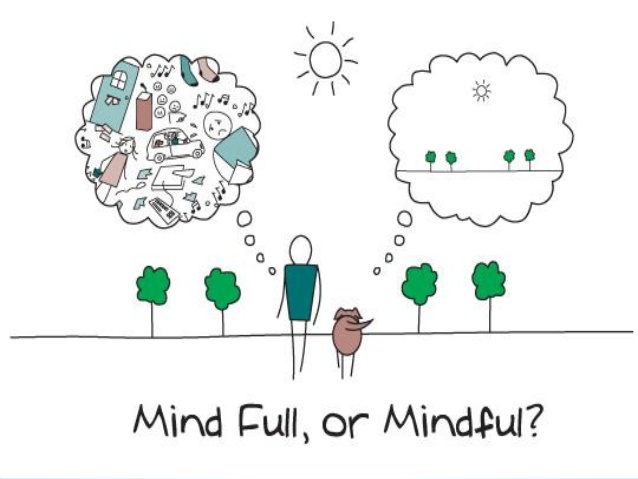

Have you ever heard of mindful living? This spiritual practice has been very popular in the past years, which might seem surprising considering the fast-paced world we lived in, but, at the same time, psychologists and life coaches say that this is the practice we all need right now. Why is that? Because mindfulness is a practice that teaches us how to live in the present moment, how to find the path to our true self. According to a 2010 study conducted by the Mental Health Foundation, almost 90% of people feel that they cannot enjoy the moment and the stress of what is to come prevents them from feeling happy, accomplished and healthy. Contrary to what many people think, mindfulness is not a cult, a religion or a spiritual ritual. It is simply a set of principles passed on from the days of Gautama Buddha, a way of life that teaches us to be happier with what we have. Apart from offering peace of mind, mindful living is linked to many health benefits, including the reduction of anxiety, depression and food disorder symptoms. To practice mindfulness in your day to day life, these are the 9 main principles you should follow:
Live in the present moment
The past is an illusion, you cannot change it. The future is not here yet. The only real moment is the one happening right now, so it’s the only one you should focus on. Lingering on things that have already happened and worrying about may or may not happen in the future will keep you from enjoying and cherishing what you have right now, so this mindful living principle teaches us to focus on the present.
Judging limits your perspective
Judging ourselves and other people means splitting the world into two definitive categories: good and bad, likes and dislikes, love and hate. However, dealing with absolutes limits your perspective and your understanding of the many grey areas that make life so beautiful. Applying a non-judging mentality sets you free from labels and generalization and helps you gain a better understanding of yourself and the world around you.
Acceptance
In a similar fashion to judging, denying the reality limits your mind, whereas acceptance awakens your being. Contrary to what many think, accepting the way things are doesn’t mean giving up or refusing to improve anything. You are free to change anything you want, but change starts with acceptance. Keep in mind that acceptance can be both mental and physical: mental, because you need to embrace your inner self with all its qualities and flows and acknowledge your wounds. From a physical perspective, acceptance can actually influence your health. Doctors say that loving your body and not becoming the victim of trends and social canon actually reduces stress levels and helps your mental health. Remember that trends change and you don’t have to keep up. Accept who you are and make the changes that you want to see, not the ones that others want. If celebrities boast hourglass figures, but you want to have breast reduction surgery because that is how you feel comfortable, do that. If all your friends wear make-up but you are proud of your natural beauty, don’t wear makeup.
Be present
This mindful living principle teaches that you have to focus on what your senses see, feel and hear at this very moment and that you shouldn’t let thoughts about the past or future prevent you from taking in what happens now.
Be open to new experiences
Being afraid of change and of new experiences is one of the biggest blockers in life. Don’t stop yourself from meeting new people, visiting new places, changing your environment or experiencing new feelings. The human mind is not static, we are part of nature and therefore we change over time. Be open minded and you will notice many great changes.
Connect with the world around you
Mindfulness doesn’t mean only understanding and accepting yourself, but also the world around you. Each being, no matter how small or seemingly insignificant, is part of a whole and you are connected with it. Applying this principle helps you understand the importance of nature and why it is essential for our survival.
Let go
Letting go means not holding on to people, places, things and experiences. When you become attached to someone or something, you inherently fear losing them and you are less likely to adapt to the challenges that life throws at you. Being detached doesn’t mean you are not allowed to love and cherish, the two concepts do to exclude each other.
Non-violence
There cannot be only smooth sailing in life, so when you are faced with difficulties, be them financial, emotional or social, you should keep your calm and patience and not react in an aggressive and vengeful way, because that hurts both you and those around you.
Be generous and compassionate
One last principle of mindful living is that you should be generous and compassionate to everyone around you and to yourself. Acknowledge and be empathetic to other people’s suffering and try to help in any way you can, not because you expect a reward, but because you root for them.
Comments
Read Elephant’s Best Articles of the Week here.
Readers voted with your hearts, comments, views, and shares:
Click here to see which Writers & Issues Won.








